Network Stuff: More Internet tools than you'll likely ever use

Network management can be a complex business, often requiring a whole suite of tools to carry out properly. Or you could just download a copy of the free, open-source Network Stuff, which crams much of what you'll need into a 1.3MB portable executable.
There are graphical Ping and Traceroute tools, for instance. You're able to run TCP, UDP, ICMP or CGI scans on the IP address and ports you specify. And a Stats tab displays everything from the currently open network and Internet connections, to assorted TCP, IP, UDP and ICMP statistics, and a real-time graph charting the current activity on whatever network interface you specify.
Is your website secure? Netsparker can tell you
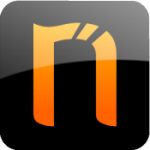
If you manage a website that has anything more than basic personal details, then it's vital to make sure it's secure. There are plenty of free tools around that promise that they can help, but which really delivers?
Netsparker's Community Edition is one popular solution, as it offers a strong core set of features with minimal restrictions (you can use it on as many sites as you like, for instance).
Accurately measure application start times with AppTimer

Optimizing your PC's performance can be a tricky and complex business, but the best place to start is by benchmarking its current speed, ideally with real-life tests such as the time it takes to launch some of your larger applications.
Once that's done then it's easy to measure how your system changes over time. Whether you've installed a new security suite which seems to have slowed you down, or a new defrag tool looks like it's ramped up your speeds, then you won't have to guess what's happening; just run your tests again and you'll see precisely what's going on.
SUPERAntiSpyware 5: Big changes in a small package

SUPERAntiSpyware 5 has just been released, in what the authors are calling "our most significant update ever". This isn't just marketing hype, either, just about every area of the new build has been enhanced and improved.
This starts with the revamped interface, which no longer hides its functionality behind a host of buttons. Easier access to key features means you can now launch the scan you need in a couple of clicks.
AVG Premium Security 2011: New features could offer more
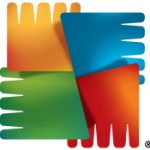
AVG's Internet Security 2011 offers all the major components you'd expect from a security suite: antivirus, a decent spam filter, effective capable firewall, browsing protection, identity protection and a range of interesting extras. Sounds great, and it's just as good in real life.
Plainly AVG wasn't satisfied, though, and the company has now released an enhanced version, AVG Premium Security 2011, which extends the original suite with a couple of additional functions. And the most important of these, by a considerable distance, is AVG Identity Alert.
CyberLink YouCam 5: Log into Windows with just a glance

CyberLink's YouCam has always been about the fun side of webcams, providing a wide range of special effects to spice up your video chats with friends and family.
Not everyone is interested in enhancing their video with backdrops of falling snowflakes, though, or animated extras like birthday cakes or bunches of flowers. And perhaps realizing this, CyberLink has changed direction with the new YouCam 5, released today: all the old effects are still there (and you get plenty of new ones, too), but the headline additions this time are solid, practical features with rather more obvious benefits.
PortableApps Platform Pre-Release 2.1: Build the ultimate portable toolkit

PortableApps.com has released the latest build of its upcoming Platform 2.0, Pre-Release 2.1, a suite of tools which makes it easy to create and manage your own customised portable toolkit.
The Platform's Portable App Directory, for instance, is a capable app store. Just check the boxes next to the programs of your choice (there are games, security tools, utilities, media players, productivity apps, browsers, more than 200 in total) and it'll download and install them onto your USB key drive.
BitDefender 2012 improves malware detection and removal
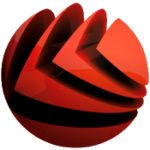
BitDefender today released its 2012 family of security suites, which have been enhanced with a range of new and interesting features.
A new monitoring tool tracks process behavior, for instance, helping to detect new and unknown viruses. Integrated cloud services deliver a faster response to new outbreaks. And the new Scan Dispatcher runs scans only when it's idle, so improving security without impacting on your overall system performance.
Find out what's really happening on your PC with ProcessThreadsView
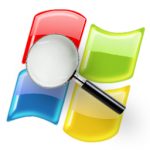
It's barely a week since NirSoft owner Nir Sofer released his last creation, CustomExplorer. But the prolific developer is already back with ProcessThreadsView, a powerful low-level system monitoring tool that displays in-depth information on the threads of whatever process you specify.
And we do mean "in-depth". Choose a process and you'll get to see each of its threads, along with their creation time, thread ID, status, number of context switches, base and dynamic priority, window title (if appropriate), class and a whole lot more.
Think your PC is fast? BenchTown will tell you

Australian software company Auslogics has revealed a new free benchmarking tool, BenchTown, and an online community site, BenchTown.com, where you can compare your PC's performance with others. The benchmarking options are fairly standard, with your CPU, RAM, hard drive, 2D and 3D graphics performance being tested.
Each component has its speed checked in multiple ways, though -- RAM is tested for both bandwidth and latency, for instance -- and our initial tests suggest the results are reasonably accurate. Keeping things simple means you can get your final score quite quickly, in around five minutes, and if you want to focus on a specific area (graphics, say) then you can run only those tests for even faster feedback.
DumpIt can recover lost data following app crashes
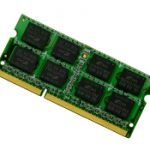
Program lockups are always annoying. But if the app in question has the text of an important document, which you've been working on for hours, and not actually saved to disk yet, then it could be a real disaster.
Don't shut down the hung program, though -- you may still be able to recover your carefully crafted words, just as long as you've a copy of DumpIt to hand.
Browser blowout: Which is fastest, most standards compliant [benchmarks]?

The browser wars are back, not least due to hectic and ever shorter release schedules, just about every other week there seems to be some new build promising that it's the faster way to get around online.
But which browser really delivers the best performance? We decided to pit the leading contenders against each other in a gruelling set of benchmarks to figure out the truth for ourselves.
Process Explorer 15 adds GPU monitoring

Process Explorer has always been one of the best PC monitoring and troubleshooting tools around. There's always room for improvement, though, and the latest version sees a very useful addition in the ability to track graphics processor (GPU) usage on Windows Vista or later.
You won't see this by default when the program first launches, but that's easy to fix. Click View > Select Columns > GPU and check the boxes next to whatever you'd like to watch: GPU Usage, GPU Private Data, GPU Committed Bytes, or GPU Shared Bytes.
UserAssist uncovers hidden Windows activity logs
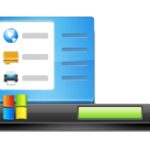
It's no secret that Windows records many details about how your PC is being used. A quick look at the Start menu will probably uncover the programs you've launched recently, and the documents you've opened, for instance, while histories in WordPad, Paint, the Run box and so on reveal even more about your recent activities.
What's not quite as well known, though, is that Windows also maintains a longer and separate history of all the programs launched on your computer, including details like the number of times they've been run, and the last execution date and time. This information is stored in the Registry (HKEY_CURRENT_USER\Software\Microsoft\Windows\CurrentVersion\Explorer\UserAssist), but it's encrypted, so you'll need something like the free UserAssist tool to find out more (for Windows 7 use this version --for Windows XP or Vista go here).
OSForensics keeps watch on pesky Windows Registry changes
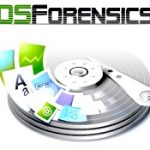
Install one program, run another, remove a third, and all kinds of changes will be made to your system: files added, others deleted, Registry keys modified and more. Understanding exactly what's going on can help you uncover malware, troubleshoot conflicts and solve many other problems, and the latest beta of OSForensics makes this very easy indeed.
The program has always been able to monitor and report on file-based changes. So you could use it to create "before" and "after" signatures of your current system, then compare the two for a report of all the files that have been created, modified or deleted. And OSForensics 0.98 has extended this by adding the ability to check for Registry changes, too.
© 1998-2025 BetaNews, Inc. All Rights Reserved. Privacy Policy - Cookie Policy.